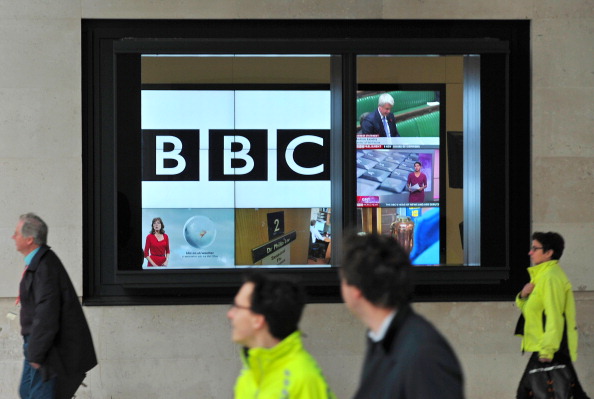The BBC keeps scoring own goals with its internal comms

Like the perfect colour for a cup of tea (green, in my case), it seems that everyone in the UK must have an opinion on the BBC.
Auntie, age 97, has become loathed in some quarters of the right-wing press, with omnipresent claims of BBC bias, and equally hated in sections of the left-wing media, with similarly omnipresent claims of BBC bias.
The attacks tend to get louder during General Elections, when the public service broadcaster gets accused of committing all sorts of sins by politicians from every party.
After securing a strong majority in December, the freshly elected Prime Minister Boris Johnson has ordered a review of the BBC’s funding via the licence fee. And now the institution’s highest-paid star and football pundit extraordinaire Gary Lineker (star of Match of the Day, Sports Personality of the Year, and the first episode of season three of W1A) has put the boot in.
“You’re forced to pay it if you want a TV, and therefore it’s a tax,” he told The Guardian. “The public pay our salaries, so everyone is a target.”
This VAR-free intervention comes after the BBC’s director-general, Lord Tony Hall, announced his decision to stand down from the top job in the summer, and it follows presenter Samira Ahmed’s successful and high-profile equal pay case against the BBC.
Times were already tricky — but somehow, the broadcaster made things worse by committing a cardinal sin of internal communications and failing to let employees know about a major shake-up of its current affairs programming.
This has meant that the BBC has unintentionally picked a fight with award-winning, cancer-surviving Victoria Derbyshire, who claims that she first heard about the alleged axing of her programme in The Times.
It is a similar story for the award-winning BBC correspondent Sanchia Berg, who took to Twitter to say that she learnt through the Mail Online that “the job I’ve done for more than 20 years is to be closed”. A backlash has ensued, with viewers urging the BBC to keep Derbyshire’s show.
Get the news as it happens by following City A.M. on Twitter.
There are many great examples of change management communications — this was certainly not one of them. In fact, it was a massive fail. Perhaps the BBC’s management has spent too much time watching The Apprentice and not enough time learning from chief executives in the real world who actually appear and are scrutinised on their programmes.
The BBC needs to regain its position as one of the nation’s most trusted and treasured brands. But building trust starts at home, and it will have to work hard to regain the trust of its most valuable assets: its talent. After all, who wants to work at an organisation that effectively announces your redundancy in a national newspaper?
Auntie will reach her one hundredth anniversary in three years. A new director-general will be at the helm, the licence fee will likely be reformed, and the talent pool will be in demand from several new entrants as we enter a new phase of the streaming wars.
It is time for the BBC to start acting its age, harness the immense wisdom that lies within this media behemoth, and attempt to regain the moral high ground in public life.
In other words, and as Lineker would say, it needs to stop scoring so many “own goals”.
Sign up to City A.M.’s Midday Update newsletter, delivered to your inbox every lunchtime
Main image credit: Getty